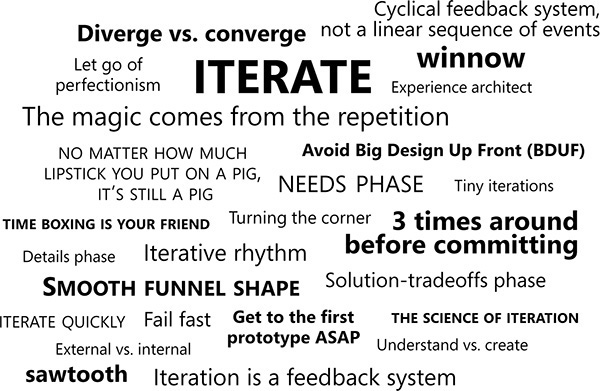 Photo Credit: The Minds Journal
Photo Credit: The Minds Journal
We hold the doors open for each other.
In recent days, I’ve marveled at common spaces we share in the world.
Out early in the morning, we pull into Wawa for coffee, and gas if we need it (maybe where you are the gas station/convenience store has another name). On the way to our jobs or appointments. We wait on each other topping off our coffee per personal preferences. We share spaces. We check out together.
We hold the doors open for each other.
In the line at UPS, we wait. We are there to mail packages, return items, or maybe get a passport picture. We wait together. Young and old. Latino, Asian, Black, White. We wait and we hold the door open for each other.
Sitting or standing in the crowded reception area of the local free clinic, we wait to be seen. Again, a wide mix of people. All of whom, except for me, were not born in the US. [I was there with an Afghani refugee lady, helping her get medical services.] All of us there having successfully jumped through the hoops of obtaining that first appointment. We have this in common. We share this comradery.
We hold the doors open for each other.
In all these situations…and others…we are people with stories not necessarily known and yet with common threads. We have our stories. Both victim and victor stories. We do not have to choose to be defined by them…especially not the victim stories.
By definition, a victim is someone who has been injured, harmed, has suffered as a result of circumstances or what we consider to be disrespectful behavior from others. – Linda and Charlie Bloom
The Victim Identity: Signs and How to Recover – Linda and Charlie Bloom [Quick read in 3 parts. Excellent resource.]
Maybe it’s different where you are in the world, but in our current socio-political system and culture, we are grappling with critical theory – the push to believe that all of humanity is either in the oppressor camp or the oppressed camp.
Deconstructing Critical Theory: Oppressed and Oppressor – Kevin Watson
Are there oppressors in the world? Absolutely. Are there those who are or have been oppressed? Unfortunately, also yes.
However, we, as peoples, are neither only oppressed or oppressor, in our fullest identities. We can rise up; not pointing fingers at each other, but in a larger understanding of one another. Not being subservient to either worldview.
Overcomers…
For those of us who have capacity and capability to help others, we help most effectively and comprehensively by influencing a pathway forward for those who have identified themselves as victims.
Or maybe the victim mindset was thrust upon some. A very wise person said to me just this morning, “If you want to ‘control’ people, convince them they are victims”.
Think about it…that is definitely oppressor behavior…and yet sometimes it is communicated by those in positions of power or influence who seem the most benevolent.
 Photo Credit: Courtney Wadley
Photo Credit: Courtney Wadley
As for doors? Most doors are closed; that’s their nature. That is their purpose. No added meaning. Sometimes, oppressors lock doors and control who goes through. Those who primarily think of themselves as victims may feel intimidated or persecuted at the prospect of prying open the door. If we look at doors as both giving access and protecting from evil (whatever that is), we use them accordingly. Most people, thankfully, hold the doors open for each other…and will continue to do so no matter how culture changes.
How we self-identify matters, in terms of a way forward. When we see ourselves as victims, our sense of agency or self-empowerment is diminished by our own mindset. Then there are the myriad of messages calling us to align ourselves with victimhood. These messages come from both well-meaning people and those who would seek to pigeon-hole us in ways we can be exploited.
All the scenarios mentioned at the start of this piece have stories attached to them. I don’t know those stories, but I do know many others. We all do. Telling and living our stories truly make for real legacy, for ourselves and our children.
Bad things have happened to us (some more than others). We can learn from each other if we are willing.
A victim mindset imprisons both the one who was harmed and the one who did the harming…as well as those in between who want to help but may not know how…yet. What a difference if we can empower rather than impoverish. Embrace Communities‘ Wendy McCaig trains people to understand and operate with this worldview. Away from identifying victims and just doing “for” people as if they can’t possibly do for themselves. She lives and teaches to do “with” people, together discovering giftings and orchestrating opportunities to express those giftings (along the way, strengthening their families and communities).
In this way, we hold the doors open for each other.
 Photo Credit: Wendy McCaig, Embrace Richmond, Embrace Communities
Photo Credit: Wendy McCaig, Embrace Richmond, Embrace Communities
YouTube Video – TED Talk – How I Stopped Being a ‘Victim’ and Restarted My Life – Arman Abrahimzadeh
How to Know if Your Victimhood Has Become Your Identity – Rick Thomas
Monday Morning Moment – Building and Re-building Community – Deb Mills
Monday Morning Moment – Steps Forward in “We the People” Becoming True for All Americans – Deb Mills
Sunday Reflection – Am I My Brother’s Keeper? On Neglect – Part 1 and Part 2 – Deb Mills




